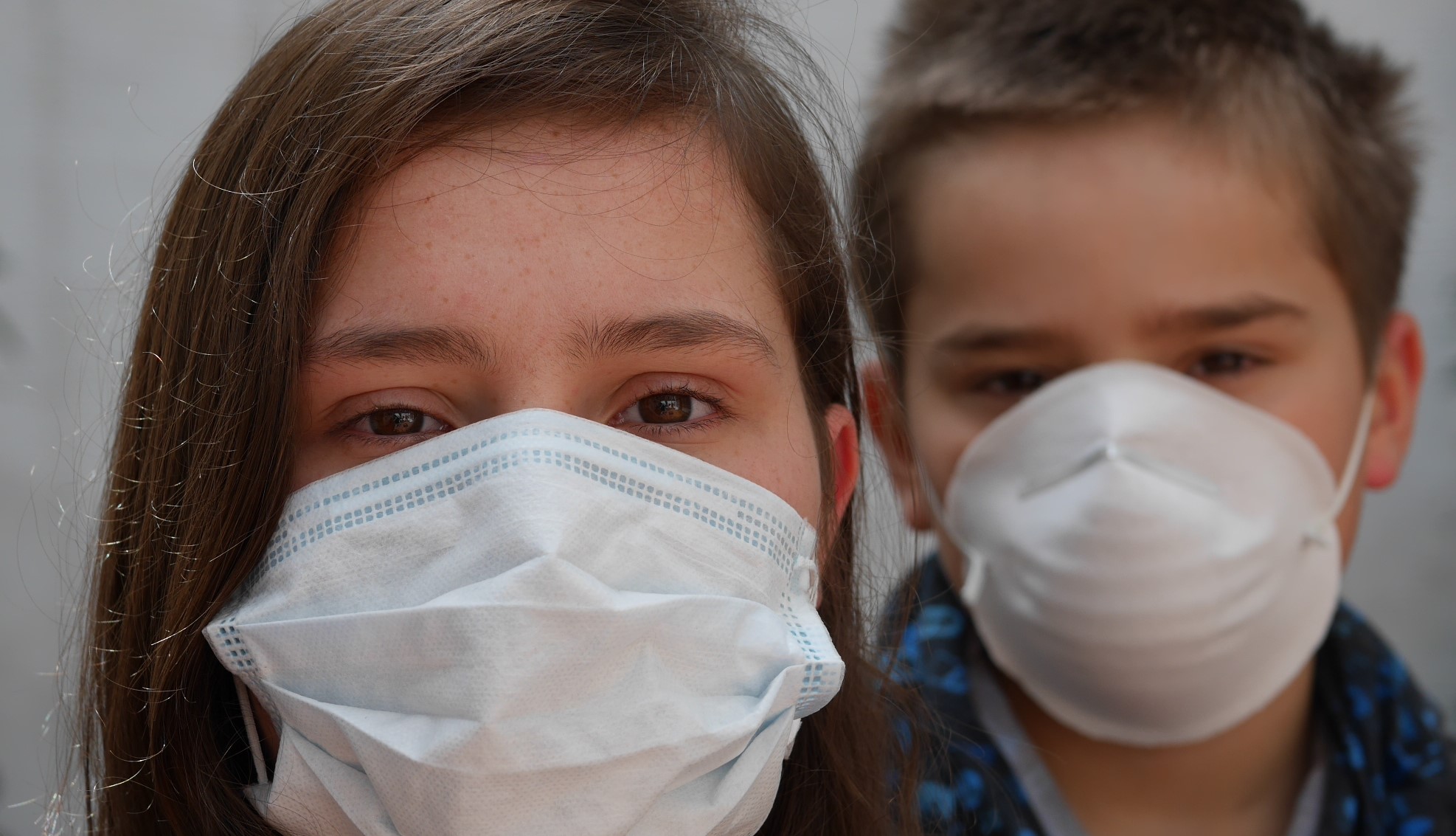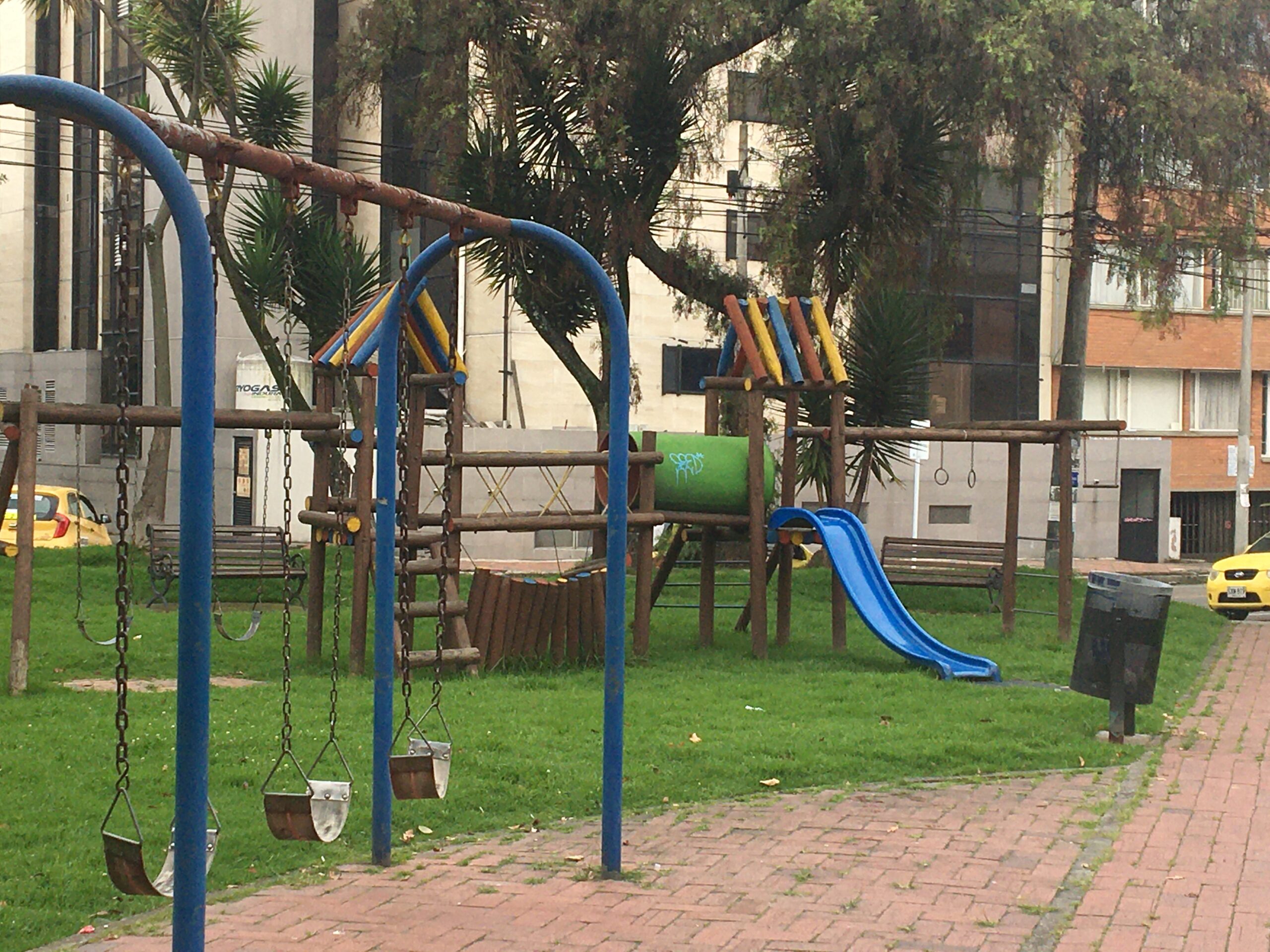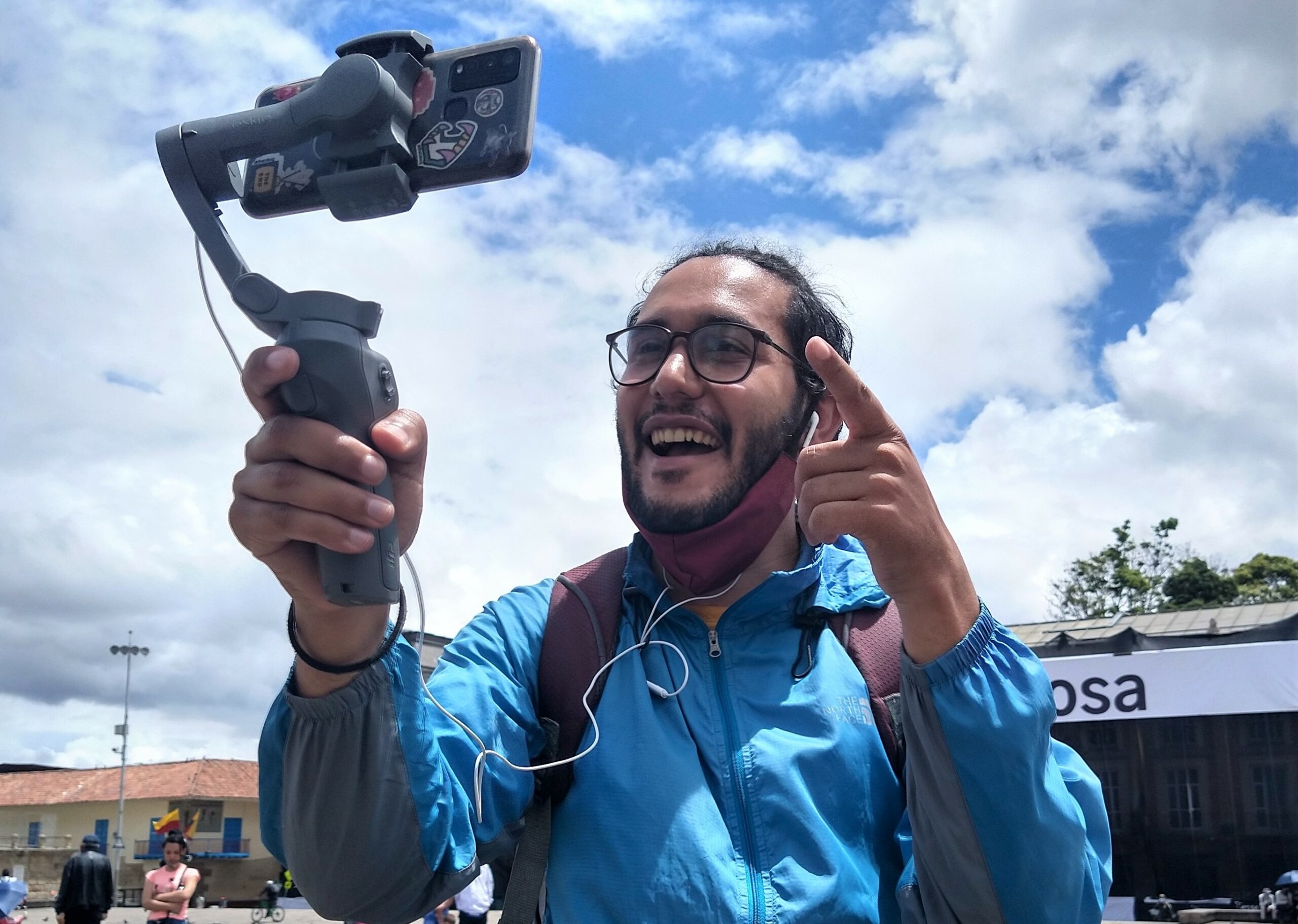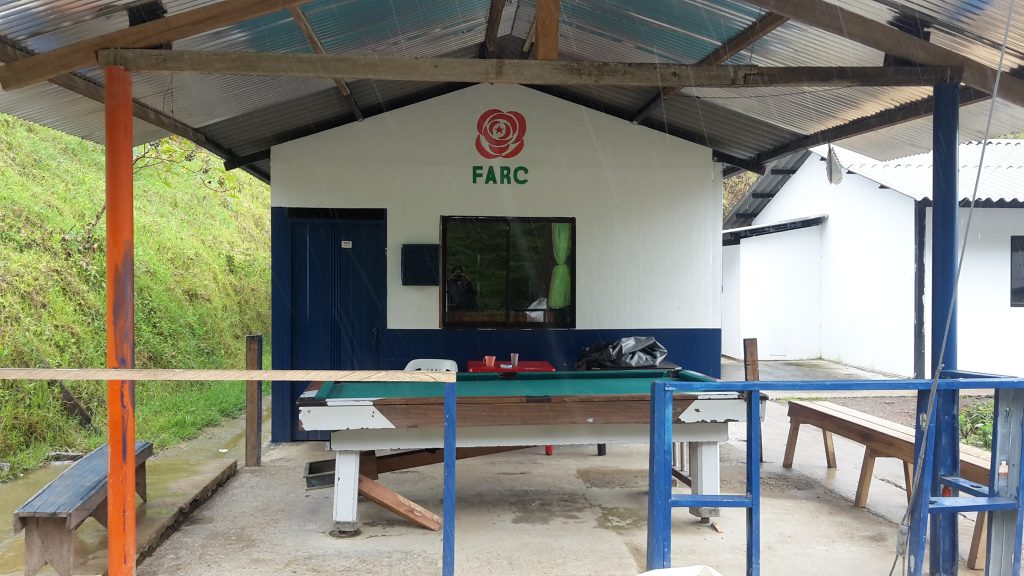
Long-term politician and chief negotiator with the FARC, Humberto De La Calle talks to us about peace, equality and nadaismo . ‘At the moment we’re playing a football match without a referee and often outside the limits of the field,’ he says.
Midway through my interview with Humberto De La Calle, I cautiously broach the subject of his 2018 bid for the Colombian presidency. He secured just 2% of the vote and I’m concerned the wound may still be fresh.
“It was a complete failure!” he says, erupting into laughter. “I suffered one of the most thunderous defeats in the recent history of Colombia. That’s a clear fact!”
It’s tempting to view De La Calle as a tragic figure of Colombian politics, like the man in Kipling’s poem If: forced to watch the things he gave his life to broken, as he stoops to build ‘em up with worn-out tools.
If he feels betrayed, misunderstood or humiliated, he doesn’t show it. Slight, balding and suited, De La Calle looks like a politician, but he doesn’t talk like one. As an interviewee he’s self-deprecating and candid. His answers bulge with knowledge and mischievous turns-of-phrase.
Now 72, Humberto De La Calle has been at the centre of Colombian politics since the mid-1980s. He oversaw the tricky implementation of the country’s 1991 constitution (receiving a rare ten-minute standing ovation from congress for his efforts); served twice as vice-president; and as the government’s chief negotiator in Havana, convinced the FARC to give up their weapons in 2016, ending the longest civil conflict in Latin American history. When we met he was working on the final edits to his account of the negotiations, Revelaciones Al Final de Una Guerra which was released at the start of March this year.
Complementing this unparalleled CV is a sincere likeability. In the lead up to the election he had the highest approval ratings of any candidate as well as a Bernie Sanders-like cult following among educated younger voters. When a picture of him apparently asleep in front of a beer in Bogotá airport went viral, supporters popularised the hashtag #UnaPolaConDeLaCalle (a beer with De La Calle), which saw an influx of selfies of fans holding up cans of lager in solidarity on social media.

His subsequent electoral disaster was not a shock to those with experience of the historical issues and prevailing tides of Colombian politics, however. Having won the primary to represent the Liberal Party, he received only lukewarm support from party bigwigs and was unable to form an alliance with fellow centrist candidate Sergio Fajardo. Both men’s moderate programs suffered in the face of the mutually reinforcing rise of populism on the left and right of the political spectrum.
“Some people think the political centre has no personality, that it’s like a decaf coffee,” says De La Calle. “It’s important to have convictions but also a liberal view of democracy, to find solutions following rules we all respect. At the moment we’re playing a football match without a referee and often outside the limits of the field.”
What-if moment
He describes the October 2016 plebiscite – in which voters rejected the proposed peace agreement by a narrow margin – as a great “what-if” moment in the nation’s history. Given the significant judicial reforms included in the document, both the government and the FARC felt that a show of popular approval prior to talks would provide a level of legitimacy to the deal. However, while the peace agreements were subsequently passed by congress following minor changes, the plebiscite opened a rift between the right-wing supporters of former president Álvaro Uribe – represented in the candidacy of Iván Duque – and Gustavo Petro, representing a left-wing agenda that had been absent, if not impossible, during the armed civil conflict.
“Our society is losing hope, identity and solidarity,” says De La Calle. “With the end of the conflict with the FARC, social critique has become sharper and politics, harsher.” The subsequent polarisation has led to a breakdown in dialogue and democratic values. The most obvious and potentially dangerous example of this is President Duque’s undermining of the peace accords by cutting funding to key institutions and questioning the role of the Special Jurisdiction for Peace (JEP).
Related: Hard times for the JEP
“It’s an act of treachery to disarm the guerrilla and for the state to betray them. This is not a judicial matter, it’s an ethical one.” For De La Calle, the government’s apparent intention to go back on its word creates greater distrust among disarmed guerrillas, making them more likely to join residual crime groups, and undermines any future negotiations with violent groups, including the ELN. “The peace deal is not the same as the end of conflict. We were very careful not to fall into that trap and it would be a disaster for the state not to comply with its commitments.”
As an interviewee Humberto De La Calle is self-deprecating and candid. His answers bulge with knowledge and mischievous turns-of-phrase.
Like many, Humberto De La Calle had hoped that Duque would prove a moderating influence on the reactionary impulses of the Centro Democratico party. But in addition to rolling back on the peace deal, Duque has recast himself as a “war president” in the wake of the ELN bombing of a Bogotá police academy in January, which killed 21, and as a central figure in regional efforts to topple Nicolás Maduro from the Venezuelan presidency. In addition, the new president has introduced a number of socially conservative measures to appeal to his supporters, such as a crackdown on the possession of small amounts of recreational drugs. For De La Calle it’s a distraction from the underlying problem facing Colombian society: inequality.
Growing up in conservative Manizales – “more of a convent than a city” – De La Calle rebelled. He became an avid reader of French existentialism, fell in with the riotous nadaista poetry movement (see further down), was expelled from school for his writings, and found his career prospects blocked due to his political sympathies. A career in politics and law had distanced him from his radical roots. “Working from an office in Bogotá, it’s easy to become indifferent about the realities of the countryside, the invisible Colombia.”
Inequality
While his dialogue with the FARC’s heavy rhetoric forced him to explore new reserves of patience, it also brought him closer to those realities. “My time in Havana made me more sensitive to social equality, and I recovered what I had felt when I was 16 years old, what I had lost as a lawyer, a bureaucrat and a bourgeoisie.”
The FARC’s rhetoric may have been tedious but it was correct in its assessment that land reform lies at the centre of the country’s extreme inequality and, therefore, long-term peace prospects. Today, Colombia’s smallholder farmers are often unable to compete with cheap food imports encouraged by the signing of multiple free trade agreements. At the same time, huge expanses of land, particularly in the Llanos plains in the east of the country, are underutilised or used as pasture for the beef industry. De La Calle says the solution comes in two stages: first by stabilising rural communities by providing access to land, technical assistance and improved state services. Large scale for-export agriculture can then be developed by increasing Colombia’s preposterously low land taxes to incentivise owners of unproductive plots to more intensive agriculture. “Colombia has enough land,” he says, “We can help small farmers become more productive whilst still developing ambitious projects in the Llanos.”
Related: Presidential candidates: Humberto De La Calle
Getting such reforms through a conservative congress will be a challenge, however, even before the pervasive issue of corruption amongst political and economic elites is taken into account. In his first spell as vice president he alienated President Ernesto Samper by supporting for the Proceso 8000 investigation which uncovered the role of narco money in his boss’s electoral campaign. In his view, however, the situation has only got worse since then. “Proceso 8000 focused on dirty money in electoral campaigns, and today we see a universal network of corruption. New perverse scandals come to light every day and the prosecutor’s office has lost all legitimacy.”
“At the moment we’re playing a football match without a referee and often outside the limits of the field.”
While Odebrecht investigations in Colombia are slowly beginning to touch the country’s business and political elite, so far prosecutions have not been anywhere close to those seen in other Latin American countries. “Colombians are realising that justice is only for some people,” he says. “In Colombia justice is just a mask, the system is rotten on the inside.”
A reputation for honesty did little to help Humberto De La Calle in an electoral field of colourful characters with less than salubrious backstories. He couldn’t compete with the hand-on-heart faux patriotism of the Uribistas and was unprepared to indulge in the fairytale economic promises of Gustavo Petro. It would be a surprise if De La Calle were to take another shot at the presidency. He doesn’t seem cut out for tropical politics but it’s easy to imagine his talents and character
Humberto and nadaísmo
Humberto De La Calle rose to political prominence as a result of his excellence as a lawyer, but life in the courts was always a sad compromise for a man whose dream was to be a writer. Growing up in Manizales in the 1950s, his early fascination with French existentialism was briefly thwarted when his mother hid his quietly accumulated library following advice from her priest. In the 1960s, however, the nadaistas rescued De La Calle from his intellectual isolation.
Comprised of 13 poets in their teens and early 1920s, the nadaistas were Colombia’s version of the beat generation. They became notorious as much for their bohemian lifestyle as for their ironic and iconoclastic verse. “Word of mouth came from Medellín about a group of poets and their rebellious acts in the streets,” says De La Calle. “I was young and excited by their purpose, an attack on the conservative cultural environment at the time.”
He became a self-declared “second-generation nadaista,” forming a literary group called “the 13 pipes” in Manizales and penning his own verse. However, the poets provided political as well as literary inspiration to the young Humberto in a decade when violence between the Liberal and Conservative parties was on the rise. “Nadaismo started out as a reaction towards art and literature. It was witty and scandalous,” he says, “but it became more rebellious, criticising society during an extraordinarily savage time in Colombian history.”
Necessity pushed De La Calle away from the billiard saloons and tango halls of the nadaista scene and to law studies, but he continued to write and frequently drops poems and literary references into his speeches. Time has taken its toll on the nadaistas, of which only three remain, but De La Calle remains true to their values. “Nadaismo taught me never to swallow anything whole, to avoid dogmas and to listen to others,” he says. “That sense of irony and pessimism helped me in Havana…and I think it would be useful right now as our society becomes increasingly hateful.”
Mat Youkee (@matyoukee) is a freelance journalist and analyst covering Latin America and the Caribbean from his base in Bogotá. His work has been published in The Guardian, Americas Quarterly and The Financial Times.





